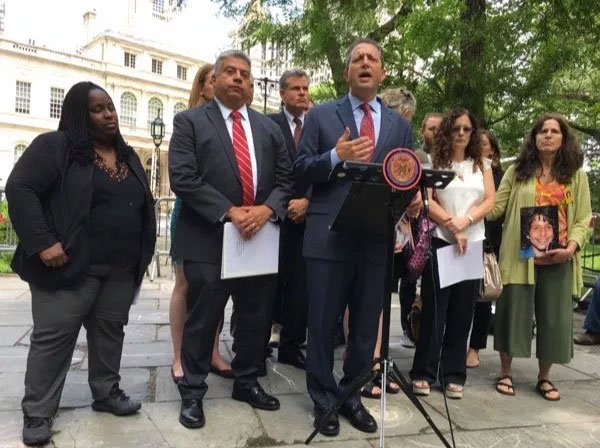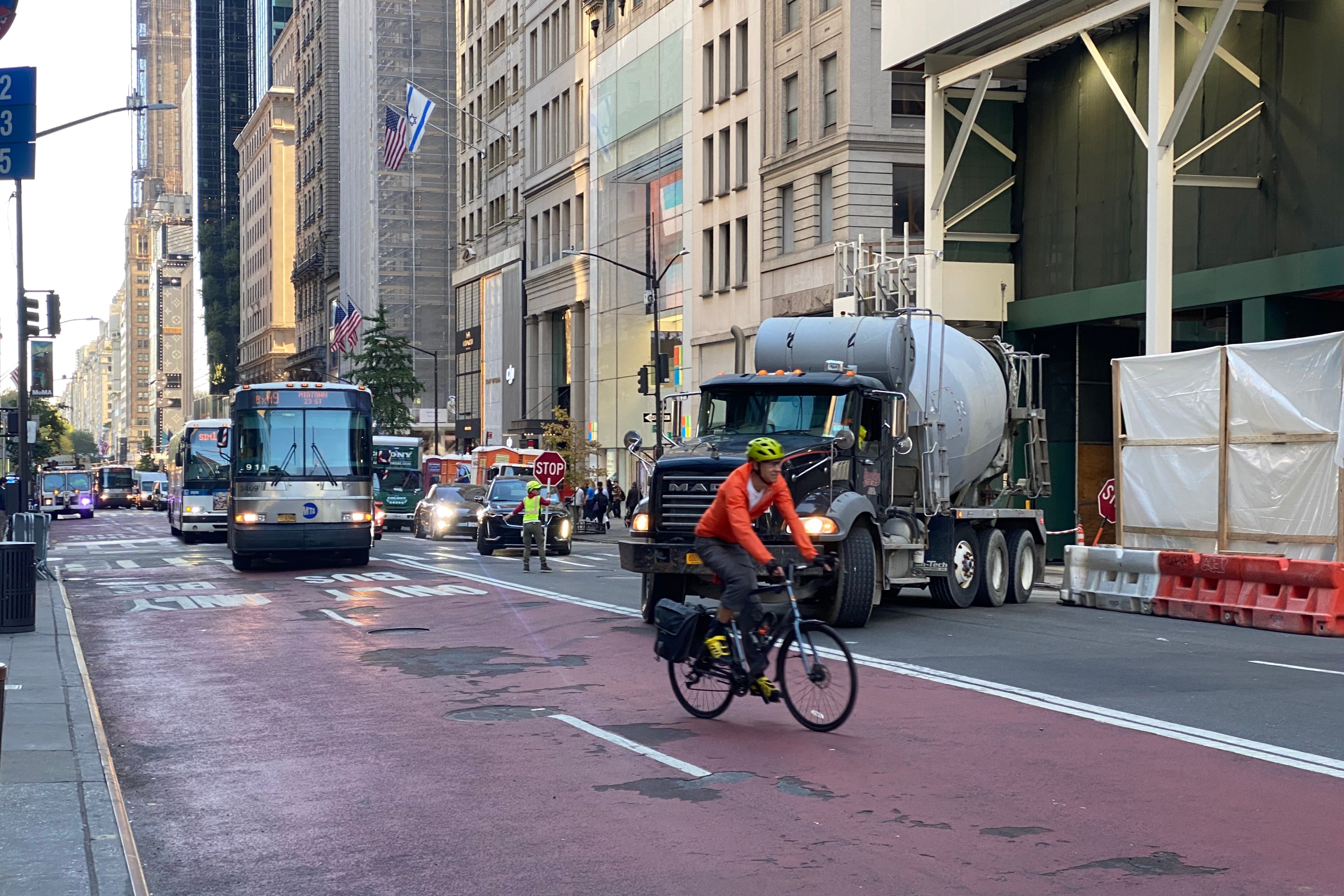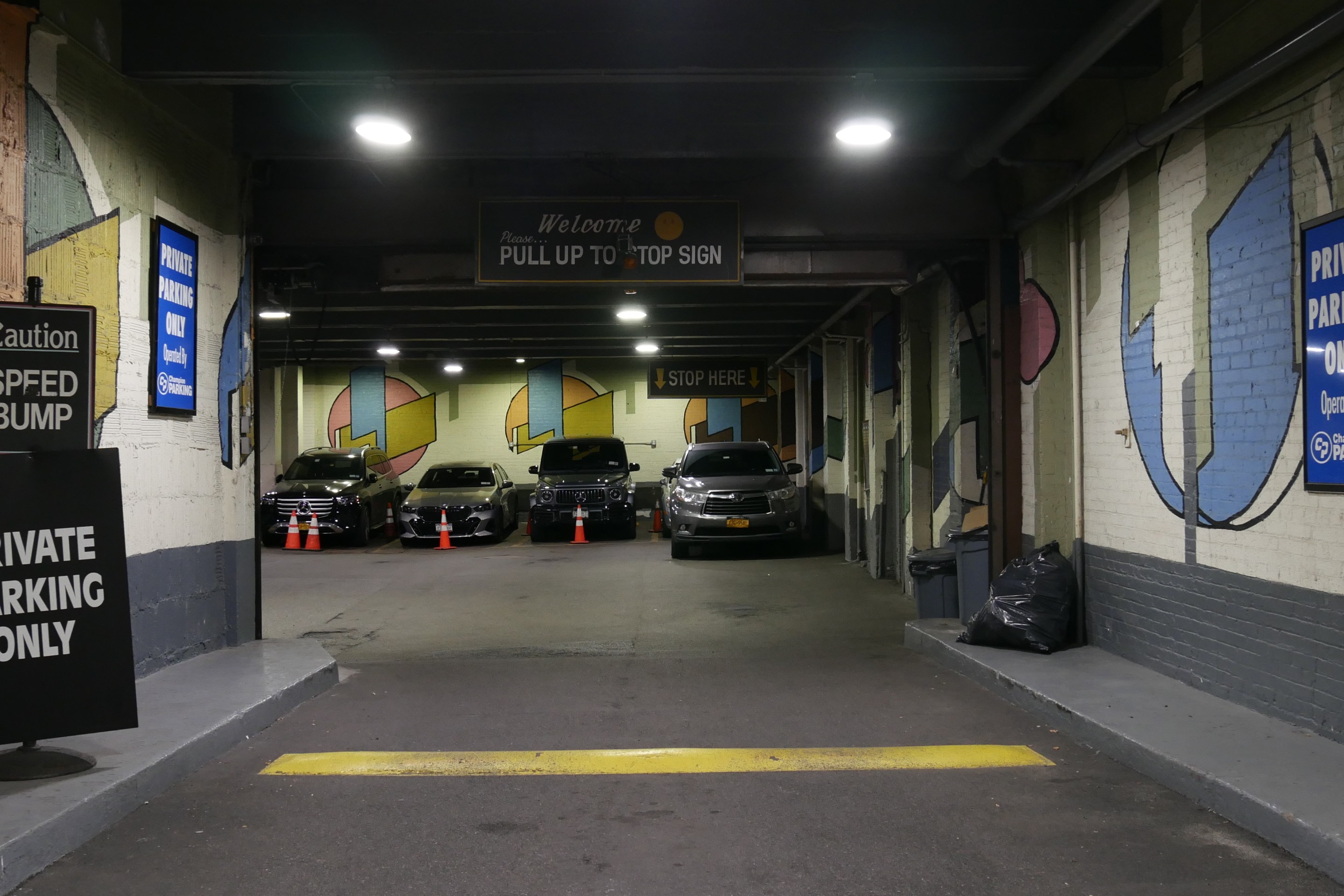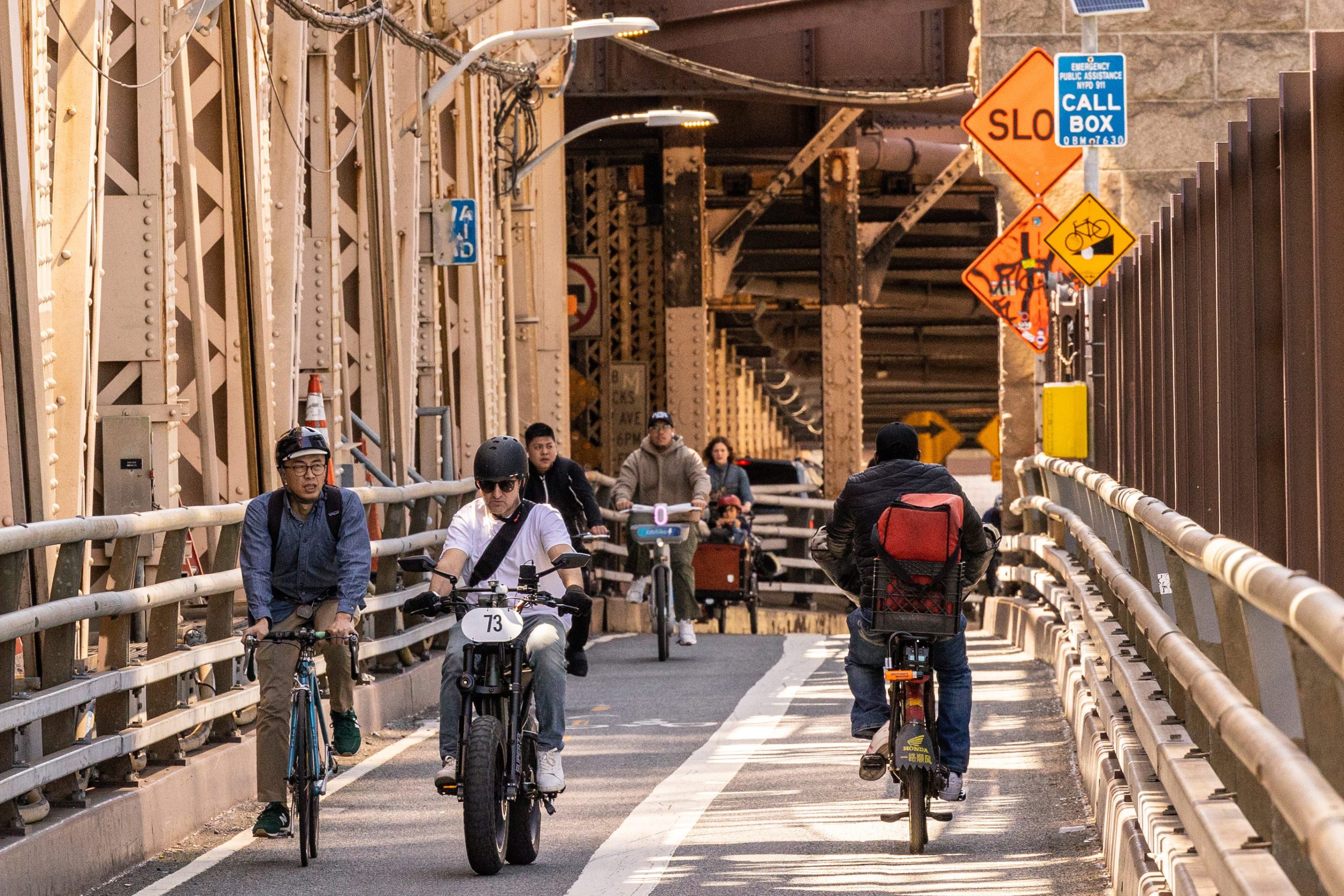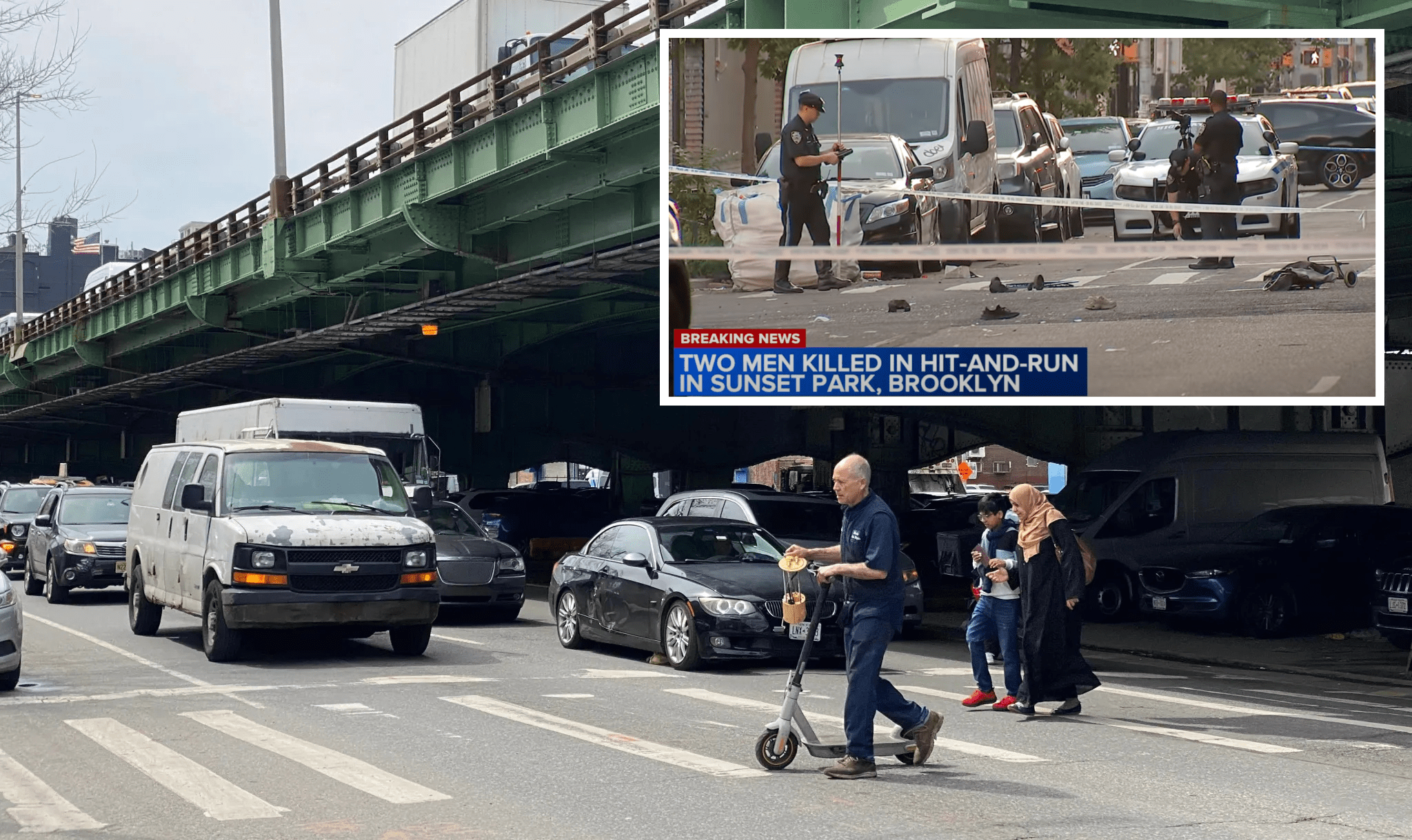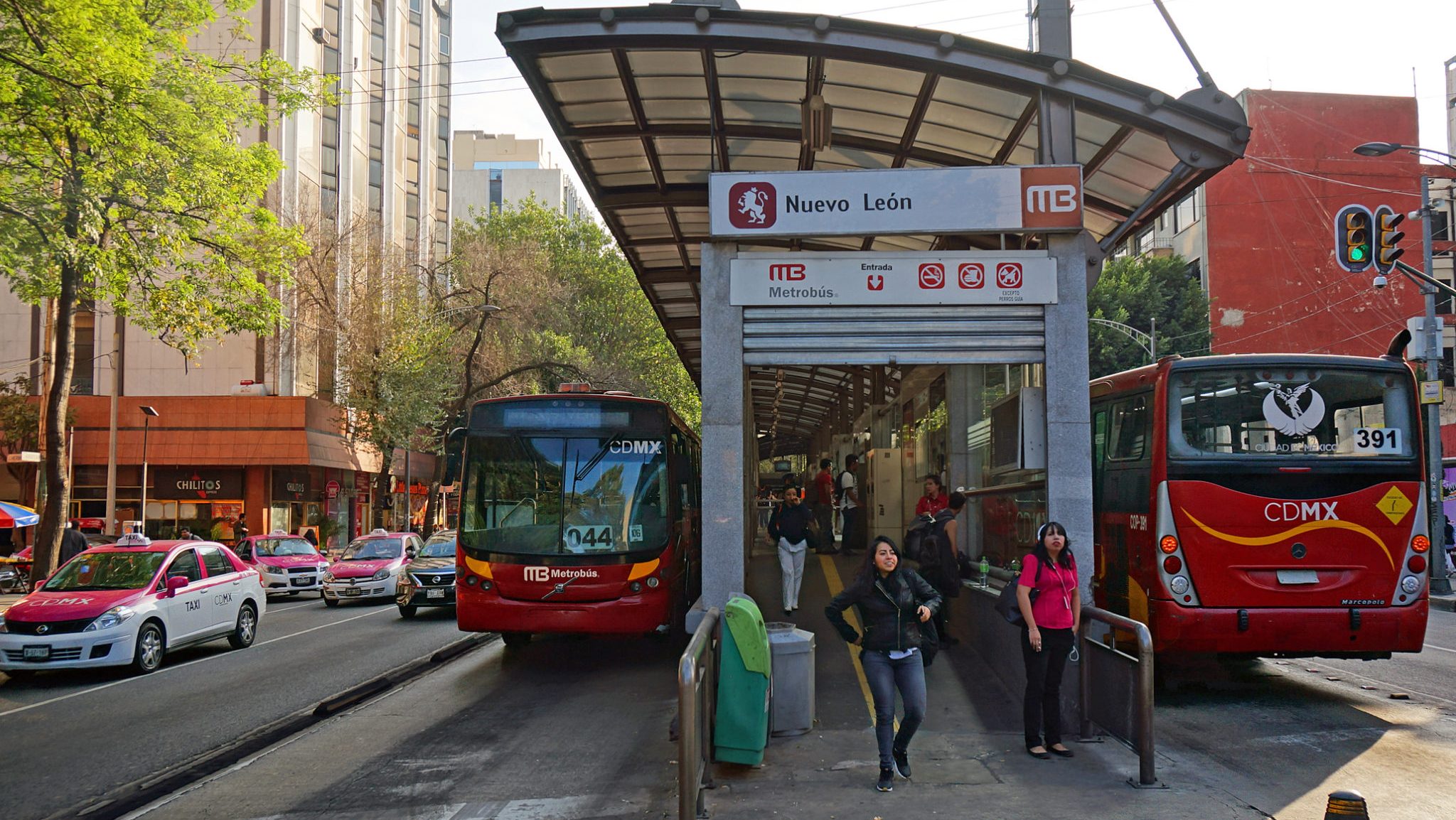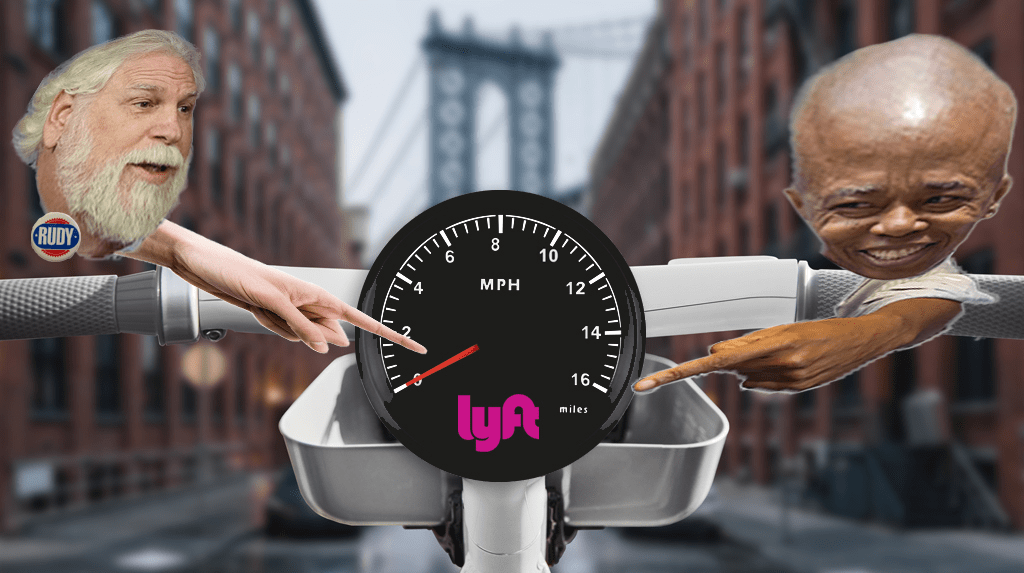The Founding Fathers are making it especially difficult to get reckless drivers off New York City streets.
Jefferson, Franklin, Hamilton and the like certainly didn't anticipate a day when devices called cameras would be able to automatically capture the moment when a driver exceeded a posted speed limit or raced through a crimson traffic signal. But they did understand the basic concept that the government should not be allowed to seize a person's property without reasonable cause.
They embedded that concept in the Fourth Amendment — which protects the right of the people "to be secure in their persons, houses, papers, and effects [and] against unreasonable searches and seizures," and that those searches would only be allowed with "probable cause."
That amendment, ratified 228 years ago, has saved countless people from police fishing expeditions and government spying, and was invoked as the means to ending stop-and-frisk, the onerous police practice of searching people without reasonable cause. But the amendment, and other legal matters, are giving Council Member Brad Lander a huge headache.
The Brooklyn lawmaker has been meeting weekly with the city Law Department to make sure his Reckless Driver Accountability Act — which seeks to seize cars that have been caught on camera for multiple moving violations (initially five, but that may be changing) in any 12-month period — can survive an inevitable legal challenge under the Fourth Amendment.
Hurdles remain, but here is a review of how far Lander and his legal counterparts have come — and how close they are to getting this bill passed:
Low-hanging fruit
Initially, Lander worried that the bill would be pre-empted by the state law that created the city's speed and red light camera program in the first place.
"The state camera law restricts the city program, and there was some concern that if [the Reckless Driver bill] was extending the camera law, there would be a problem," Lander said. "But the lawyers said that this is not an expansion of cameras, but merely uses information from the cameras to serve a public purpose."
There's definitely not consensus there; the Taxi and Limousine Commission told Streetsblog last week that it believes state law bars the agency from using camera-issued speeding tickets to discipline taxi drivers, as the agency does with cop-issued speeding tickets.
"State laws written for speed cameras and bus lane photos have provisions ... that says those photos can’t be used for any other purposes" than issuing the tickets themselves, TLC spokeswoman Rebecca Harshbarger told Streetsblog.
Maybe that's not such low-hanging fruit after all.
The Fourth Amendment
Believing the first hurdle has been overcome, Lander and the legal eagles needed to devise a workaround to balance drivers' constitutional right to not have their car seized unreasonably versus protecting the public from those very lawbreaking reckless operators who killed 217 people last year in New York City alone.
Some constitutional experts think the Fourth Amendment does not in any way protect reckless drivers, by the way.
"I don't see how any court would uphold a challenge to such a law" as Lander's, said Bennett Capers, a professor and expert in criminal law, criminal procedure and technology at Brooklyn Law School. "The Fourth Amendment does not prohibit searches and seizures — only 'unreasonable' searches and seizures. To my mind, this is a no-brainer: it's reasonable because the city is saying they want to seize the vehicle because whoever is driving, the vehicle itself poses a risk to public safety."
Capers also said that "unreasonable" could also protect individuals from government creating rules that make people's lives unreasonably difficult — but even that interpretation would not sink Lander's bill.
"The law requires government to balance how intrusive it is to the individual," he said. "But in this case, vehicle owner merely has to go pick up his or her car after it has been seized. That's minimally intrusive compared to the public benefit of saving lives."
Some legal experts disagree, offering an insight into how drivers might challenge the bill once it becomes law.
"There should be a letter sent to politicians by people in constitutional law that says, 'Excuse me, but you're about to do something that will lead to a lot of litigation,'" said Gloria Browne-Marshall, a professor at John Jay College of Criminal Justice. "Politicians often create laws that lead to litigation, like stop-and-frisk. Lives get turned upside down, people suffer, then there's lots of litigation and the laws are changed. Our system is so backward, but politicians want what they want."
People who receive automated tickets can fight them in court, of course, and if they're not guilty, that ticket won't count against their record. But that only raised another constitutional issue for the professor.
"So even if you pay all five tickets, you get an additional punishment: the seizure of the car," she said. "That seizure would require its own due process to ensure that the driver received all of the notices leading to a possible seizure, for example."
Lander said there would be due process every step of the way: Car owners will still be able to fight any camera-issued ticket, and all notices of alleged camera violations will be changed to let drivers know that accumulating a set number of tickets — the number has yet to be decided upon — may allow authorities to declare a particular vehicle a "dangerous instrument."
That's how the city will get around the driver's main complaint about camera violations: "But I wasn't driving the car — my friend was." Multiple moving violations in a set period of time will trigger the "dangerous instrument" ruling, regardless of who was driving.
And that ruling can be disputed before a car can be seized. Lander believes that sequence of events should satisfy the courts.
"The difference is the declaration of the car as a 'dangerous instrument,'" he said. "It's not as if your car is simply seized when it registers that last ticket. You will get a notice that your vehicle has been declared a dangerous instrument. A driver can address this by taking a driving course or by going to a hearing to contest the finding. And even after that, we might still have to give you one more notice and contesting opportunity before the sheriff can seize the vehicle. Most people will just take the driving course. It's easier."
Remaining challenges
There remain some issues about how many cars can be seized, given existing manpower and space at existing tow pounds, Lander added. And the expansion of cameras — which are being added at roughly 60 systems per month until the city reaches its 750 school zone cap by the end of the year — has led to more and more tickets being issued.
But the more tickets being issued may mean that the number of tickets triggering a car seizure may change. When the bill was initially proposed in June, 2018, statistics suggested that five tickets in any 12-month period would basically take the worst one percent of drivers off the roads.
"The expansion [of cameras] means that five violations would cover more drivers," Lander said. "The city is evaluating what it believes it has the capacity to do when the program is launched — what is the number of reckless vehicle owners whose tickets can be processed and heard and whose cars can then be towed? We're going to have to see. They [de Blasio administration officials] are taking it seriously. We're talking about volume, but it will still cover the most reckless drivers, but the threshold may change."
Because so many tickets are being issued by the increasing number of cameras, the threshold for seizure will likely change. Currently, moving violation tickets issued by police officers carry points against a driver's record — four points for speeding above 11 miles per hour, for example — and Lander suggested that he might be open to a similar system so that the worst reckless drivers lose their cars faster.
"Is it going to be a set number of red light and speed violations? Will there be more weight to very fast speeding? There could be points for different adjudicated violations, or we could just do an aggregate number of tickets," he said. "The goal is to have it be very simple to understand, but perhaps very fast speeding would count more."
Cameras issue tickets to any given car or truck that speeds or runs a red light on a roadway with a camera. But many cars and trucks that get tickets — looking at you, FedEx, Fresh Direct, UPS etc. — are driven by multiple drivers. And it is the reckless driver, not the truck being used by said driver, that Lander hopes to get off the road.
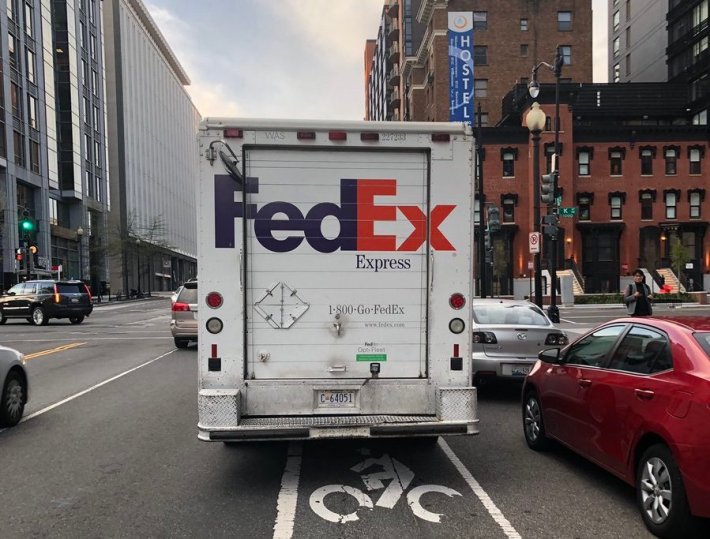
How will the city figure out who of FedEx's hundreds (if not thousands) of drivers was behind the wheel when truck number 1469348-B ran the red light in front of the school at Eighth Avenue and 13th Street in Park Slope at exactly 14:06:33 on 14-Oct-19? And if the city is able to find out who the driver was, how will officials connect that same driver to other violations across the city?
And what about United States Postal Service drivers, who are almost never held accountable (even when they kill someone) because their trucks do not have license plates?
Browne-Marshall suggested that car drivers could challenge the law if it doesn't also apply to the drivers of fleet vehicles.
"Is the city going to seize UPS trucks? Buses? Milk trucks?" she asked, pointing out that corporations have far more resources to fight tickets, which suggests that the bill might affect random drivers more than it would drivers with corporate legal might behind them.
Lander said that fleet vehicles — including vehicles in the city fleet driven by city employees on city duty — would be subject to his bill, but details about how fleet drivers would be held accountable remain to be worked out.
"The program is designed for individuals, but we're tying to do it in a way that doesn't treat people differently based on how much money they [or their companies] have," Lander said. "Fines have disparate impact. This program wants to take a restorative justice approach, so we might want something different for fleet ownership so that fines don't just become another 'cost of doing business.'"
Lander said he would not allow fleet punishment to delay the bill itself.
"I would not let it hold up the bill," he said. "This bill is not going to solve every problem, but it's an important expansion of Vision Zero into new terrain with a laser focus on the most reckless drivers."
So will this bill pass?
The Law Department declined to talk to Streetsblog for this story, but Lander said he and the mayoral agency are entirely on the same page.
"I get that people are frustrated and that there suspicions that something else is going on here [that's delaying the bill], but at the moment, this is a good faith effort," he said. "I want to give the city the credit it's due. I am optimistic that we will have a finished bill for passage early in the new year. We will identify people who own the most reckless vehicles and, after offering them sufficient due process to contest or correct their dangerous vehicle ownership, their car will be seized."
Council Speaker Corey Johnson is also optimistic because "there’s no political impediment to the bill."
"It’s just figuring out the legal structure and guidelines [related to] the Fourth Amendment, which prohibits unreasonable search and seizure," Johnson told Streetsblog last month. Brad and the Law Department are making sure that the bill can withstand any lawsuit or court challenge. We’re almost there."
